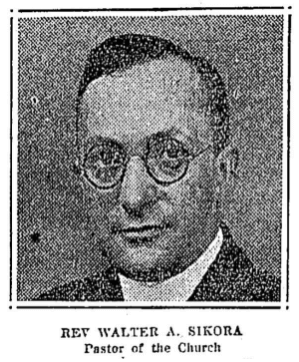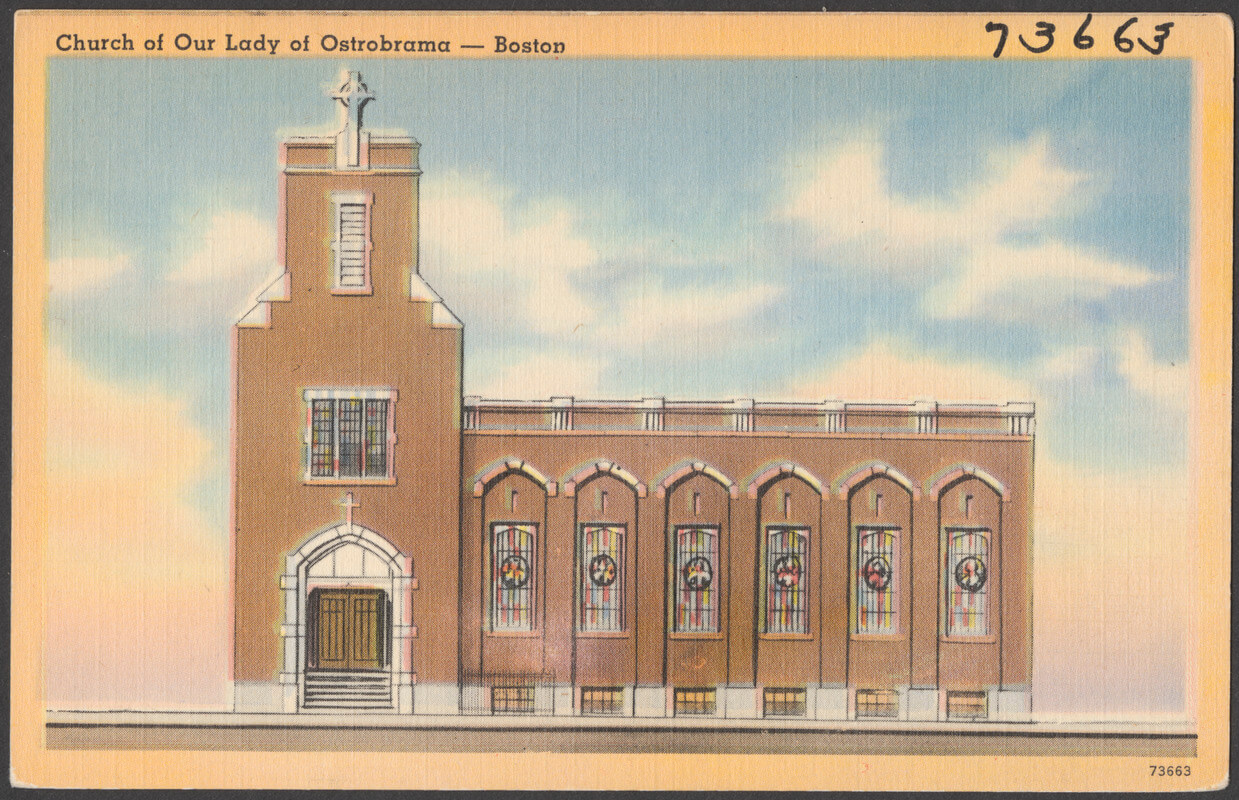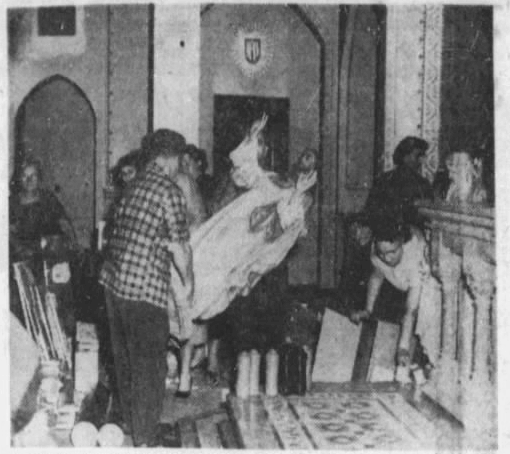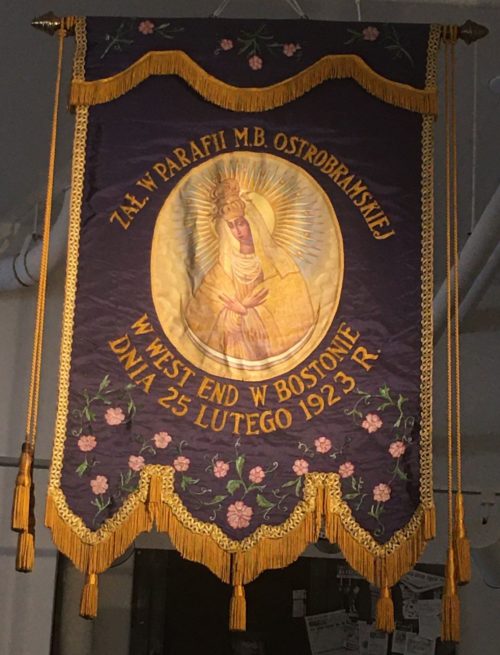Our Lady of Ostrobrama
The Founding and Demolition of the West End’s Polish Church
Our Lady of Ostrobrama, the Polish Catholic Church on Chambers St. in the West End, was founded in 1920 and demolished in 1958 on account of the Boston Redevelopment Authority’s urban renewal plan.
In the early twentieth century, Polish Catholic residents of the West End and the North End shared religious services in the basement of St. Stephen’s Church, on Hanover Street in the North End. Once the parish grew too large for the basement, Reverend Walter A. Sikora led the effort to find a new building, which he finally located on Chambers St. in the West End. On September 13, 1920, Reverend Francis W. Maley of St. Joseph’s Church blessed the building that became Our Lady of Ostrobrama, the West End’s Polish church. Polish Catholics throughout Greater Boston visited the West End to take part in civic and religious activities within the parish.
“Ostra brama” (though the Church spelled it “Ostrobrama”) means “Gate of Dawn” in Polish. The Gate of Dawn refers to the Catholic image of Mary which inspired Polish and Lithuanian migrants forming parishes in the United States. Jewish and Catholic Polish immigrants arrived in the West End after 1880 and became a substantial part of the neighborhood’s diverse foreign-born population. Civic events at Our Lady of Ostrobrama commemorated freedom struggles that connected Poland and America’s histories. In the Spring of 1925, Rev. Sikora and his parish were preparing to commemorate the 150th anniversary, in 1926, of Thaddeus Kosciuszko, a Polish general, fighting in George Washington’s Continental Army during the Revolutionary War. On December 1, 1929, Sikora and the Church commemorated the Polish men from Boston, in 1831, who left the city to participate in Poland’s insurrection against Russian rule.
Our Lady of Ostrobrama, and Sikora in particular, did not shy away from addressing important contemporary issues. On April 8, 1923, Polish organizations in Greater Boston met at the Church to adopt resolutions condemning the Soviet Union’s arbitrary convictions and executions of priests. In May of 1926, Rev. Sikora gave a sermon that argued for modifying the Eighteenth Amendment and the Volstead Act, which established Prohibition in 1920, to allow a federal commission to sell liquor. This reform, Sikora argued, would successfully undercut bootleggers who have “stopped at nothing which would earn profit” (in the Globe’s paraphrasing). Allowing limited government sales of liquor would end the “abuse for private gain,” which Sikora argued was the central evil of the underground liquor trade.
The West End’s Polish church continued to serve residents of Greater Boston until the week of October 11, 1959, when the Boston Redevelopment Authority sent wrecking crews to demolish Our Lady of Ostrobrama. The church sat atop land that the City claimed for redevelopment in its urban renewal plan, and the building would be razed when the BRA demolished over 40 acres of the old neighborhood. The previous week, parishioners visited the church to remove significant objects which were donated to other Catholic Churches in the area. Polish residents were determined to raise the money for another church, but a solemn atmosphere pervaded Our Lady of Ostrobrama in its final days. According to the Boston Globe on October 11, 1959:
It was a Monday morning and parishioners probably had much to do the rest of the day but still no one left the church immediately. Occasionally they glanced at one another in silence, or scanned the beautiful church interior as though making a mental picture expected to be vivid the rest of their lives…The usual laughter and bright small talk was conspicuously absent.
The newspaper credited Our Lady of Ostrobrama for serving “the huge Polish population of the West End” with an eye toward both its “spiritual needs” and “social needs.” Even when residents moved out of the West End, they continued to visit the church from Cambridge, Medford, Newton, and more distant areas. The demolition of the West End’s Polish church is a striking example of the indiscriminate displacement wrought by urban renewal in the West End during the late 1950s.
Article by Adam Tomasi
Source: Boston Globe/ProQuest (“Poles Condemn Soviet Atrocities,” April 9, 1923, page 12; “Polish Church Plans Observance,” September 12, 1925, page A16; “Pastor Urges Liquor Sale by Government,” May 3, 1926, page 6; “Celebrate Polish Effort for Liberty,” December 2, 1929, page 22; “West End Polish Church To Be Razed This Week,” October 11, 1959, page 20); National Park Service; Global Boston; The Divine Mercy; Encyclopaedia Britannica











